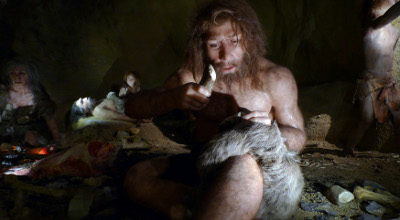Poll: Pastors Oppose Evolution, Split on Earth’s Age
Pastors overwhelmingly believe that God did not use evolution to create humans and think Adam and Eve were literal people, according to a recent survey by LifeWay Research.
The survey of 1,000 American Protestant pastors also found that ministers are almost evenly split on whether the earth is thousands of years old.
When asked to respond to the statement, “I believe God used evolution to create people,” 73 percent of pastors disagree, with 64 percent strongly disagreeing and 8 percent somewhat disagreeing. Twelve percent each somewhat agree and strongly agree. Four percent are not sure.
In response to the statement, “I believe Adam and Eve were literal people,” 74 percent strongly agree and 8 percent somewhat agree. Six percent somewhat disagree, 11 percent strongly disagree and 1 percent are not sure.
“Recently discussions have pointed to doubts about a literal Adam and Eve, the age of the earth and other origin issues,” said Ed Stetzer, president of LifeWay Research. “But Protestant pastors are overwhelmingly Creationists and believe in a literal Adam and Eve.”
Based on a Gallup poll from December 2010, pastors are more Creationist (referring to the belief that all things were created substantially as they now exist as recounted in the first chapter of Genesis and not gradually evolved) than the American public at large.
Forty percent of Americans believe God created humans in their present form, 38 percent say God used evolution to develop humans and 16 percent think man evolved with God playing no part in the process, according to Gallup.
In the LifeWay Research survey, about one in five pastors agree that most of their congregation believes in evolution. That includes 10 percent who strongly agree and 9 percent who somewhat agree. A majority (62 percent) strongly disagree and 13 percent somewhat disagree.
Only a third of pastors (36 percent) teach on creation and evolution more than once a year. That includes 28 percent who teach on the subject several times per year, 4 percent who teach on it about once a month and 3 percent who do so several times a month. Twenty-six percent teach on it about once a year, and 29 percent do so rarely. Eight percent never teach on creation and evolution.
Among the statistically significant differences:
- Pastors in the Northeast are more likely than their counterparts in any other region to strongly agree that God used evolution to create people. While 25 percent of Northeastern pastors strongly agree, only 13 percent in the West, 12 percent in the Midwest and 8 percent in the South feel similarly.
- Pastors of larger churches are less likely to believe in evolution than those in smaller congregations. Only 4 percent of pastors in churches with 250 or more in attendance strongly agree that God used evolution to create humans. In comparison, 13 percent in churches with attendance of 0-49, 14 percent with 50-99 and 12 percent with 100-249 feel the same.
- Pastors who consider themselves Mainline are more likely than Evangelicals to believe in evolution. Among those identifying themselves as Mainline, 25 percent strongly agree that God used evolution to create humans. Only 8 percent of Evangelicals strongly agree.
- Pastors who indicate they are Evangelical are more likely than their Mainline colleagues to strongly agree that Adam and Eve were literal people (82 percent vs. 50 percent).
- Pastors with graduate degrees are more likely to strongly disagree that Adam and Eve were literal people than those whose highest level of education is a bachelor’s degree (16 percent vs. 2 percent).
- • Geographically, pastors in the South are most likely to strongly disagree that most of their congregation believes in evolution. While 69 percent of Southern pastors strongly disagree, 47 percent in the Northeast, 60 percent in the Midwest and 56 percent in the West feel similarly.
In response to the statement, “I believe the earth is approximately 6,000 years old,” 34 percent of pastors strongly disagree. However, 30 percent strongly agree. Nine percent somewhat disagree, and 16 percent somewhat agree.
“Earth’s age is the only issue in this survey on which pastors are almost evenly divided,” Stetzer said. “But to many of the pastors, belief in an older earth is not the same as belief in evolution. Many pastors who believe God created humans in their present form also believe that the earth is older than 6,000 years.”
The only statistically significant difference was that younger pastors are the least likely age bracket to strongly disagree that the earth is 6,000 years old. While 24 percent age 18-44 strongly disagree, 33 percent age 45-54, 38 percent age 55-64 and 38 percent 65 and older feel the same.
Those with a graduate degree are more likely to strongly disagree that the earth is 6,000 years old than pastors with a bachelor’s degree at most (42 percent vs. 18 percent).














































